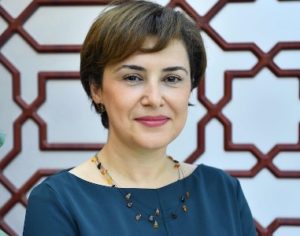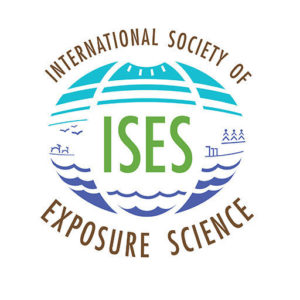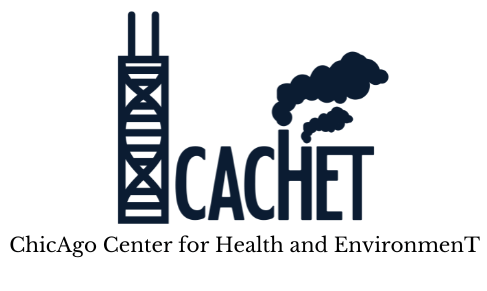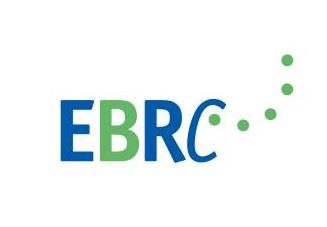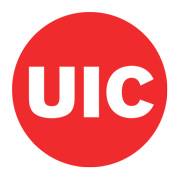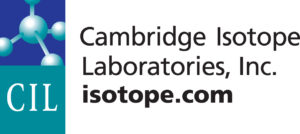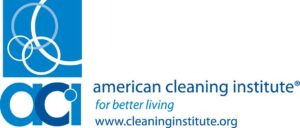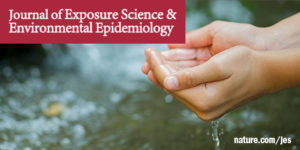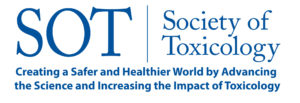27-31 August at the Hilton, Chicago
#ISES2023 has great energy, enthusiasm and partnerships! Check out the highlights on social media:
The program can be found on the meeting platform.
If you attended #ISES203, we’d love to hear your opinion. Please complete the post-event survey! Click here for the website (you’ll be required to log in or create an account if it’s your first time accessing the platform.)
Recognizing that engagement with diverse stakeholders and community leaders is key to effective environmental education, remediation, and decision-making, the 2023 conference theme, Connecting Communities & Science through Addressing Environmental Exposures, will examine the ways in which individuals and organizations can work together to identify the exposures, work to reduce exposures and improve our communities. The 2023 meeting addresses a broad look at new and re-emerging environmental exposures and their causal link to human health and our communities.
ISES IS PROUD OF OUR SUSTAINABILITY EFFORTS! Check out the plans to reduce our carbon footprint and our planned efforts ahead of time.

2022 Meeting Chairs

Marina Silva, Ph.D.

Susana Viegas, Ph.D.

Urs Schlüter, Ph.D.
Check out the program/schedule on the meeting platform.
Cancellation policies:
If a refund is requested to cancel a registration, a cancellation fee will be assessed per the policies as follows:
Full refund, minus $100 until August 1.
50% refund August 1-25.
No refunds offered after August 25.
Registration is closed for ISES 2023.
#ISES2023 will be an energetic and innovative meeting to exchange ideas among the most prominent and prestigious professionals in the field of exposure science.
Check out the preliminary program schedule! (Dates and time are subject to change!)
The educational content and presentations are important but so is the social opportunities and networking. Check out the special events scheduled alongside the scientific content:
Entertaining Evening in Chicago
 The entertainment options during the ISES Annual Meetings are always memorable! This year will be no different. Our TOC has an Architectural Lake Tour planned! Our ISES guests will be hosted on a yacht boat called the Elite for an evening of beauty and inspiring stories.
The entertainment options during the ISES Annual Meetings are always memorable! This year will be no different. Our TOC has an Architectural Lake Tour planned! Our ISES guests will be hosted on a yacht boat called the Elite for an evening of beauty and inspiring stories.
Transportation will be provided for our paid guests from the hotel to Chicago’s Navy Pier where we will board the vessel. Once on the yacht, our guests will tour Lake Michigan with amazing views, stories and informative sightseeing. The tour will include a buffet dinner and drinks and end with a magnificent fireworks display on Lake Michigan!
This experience has limited capacity! (Pre-registration is required!)
This is the best way to experience Chicago!
Date: Wednesday, August 30. The buses will depart the Hilton Chicago at 6:15 PM (local time).
Price: $200 per person
Women’s Networking Event
 Join your fellow exposure science colleagues for an energizing ISES Women’s Networking Event (WNE)! This vibrant event is a tradition at ISES Annual Meetings! It will be held at the famous Buddy Guy’s Blues Club of Chicago – just one block west of the Hilton Chicago. Drinks and light appetizers will be served. We welcome all women and individuals of marginalized gender identities. (Pre-registration is required.)
Join your fellow exposure science colleagues for an energizing ISES Women’s Networking Event (WNE)! This vibrant event is a tradition at ISES Annual Meetings! It will be held at the famous Buddy Guy’s Blues Club of Chicago – just one block west of the Hilton Chicago. Drinks and light appetizers will be served. We welcome all women and individuals of marginalized gender identities. (Pre-registration is required.)
Date: Tuesday, August 29, 5:15 PM (local time)
Price: $60 (regular attendees), $30 (SNR, LMIC attendees)
Thank you to Bayer for sponsoring reduced pricing for SNR, LMIC attendees
Student, New Researcher Happy Hour 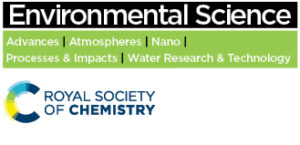
sponsored by Royal Society of Chemistry
This social happy hour is for students and new researchers only. Please join others to network, share stories and learn more. Location TBD.
Date: Tuesday, August 29 at 7:30 PM (local time).
Diversity, Equity and Inclusion Gatherings
sponsored by Emory University
 Dates: Monday, August 28 and Wednesday, August 30 (over lunch)
Dates: Monday, August 28 and Wednesday, August 30 (over lunch)
Price: Free to interested attendees
The ISES Diversity Committee is hosting an informal discussion regarding the topics of diversity, equity and inclusion related to the field of exposure science. This will be a friendly and welcoming environment for anyone interested in joining this discussion.
Price: Free for students and new researchers
New this year, the Technical Organizing Committee has planned a few panel discussions. These discussions are aimed at fostering open dialogues to propel environmental public health partnerships with communities. Join us and these amazing panelists to engage in meaningful conversations to further our impact on environmental public health.
PFAS Discussion Panel: Dive into the post-screening PFAS Discussion Panel, inspired by “Dark Waters.” Join us for an insightful exchange with leading academics, government officials, and industry experts. Discover the real-world implications of PFAS and explore collaborative solutions for a sustainable future. Your voice matters in this vital conversation. Let’s unravel the complexities together. Don’t miss this chance to be part of change. See you there! #DarkWaters
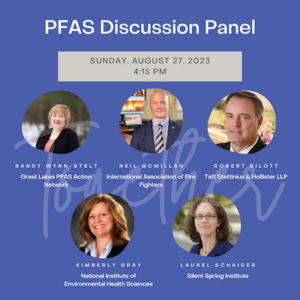
These Community Awareness Panel Discussions wrap up a day focused on community-engaged research, training, and accomplishments. The panel will highlight the work of a few local and regional community leaders and facilitate meaningful discussions to advance environmental public health in partnership with communities. The two-hour panel is organized into two 45-minute sessions. ISES attendees are encouraged to attend the community panel and engage in open discussion with all panelists after the second session.

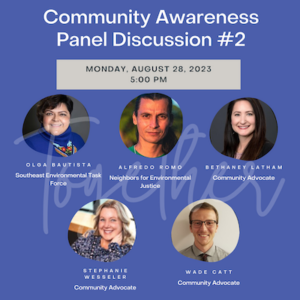
Oral Presentations:
- Oral presentations should be no longer than 15 minutes This includes a 12 minute presentation and 3 minutes for question/answer from the attendees.
- All presenters are required to include a slide disclosing any conflict of interests (COI). This should be included either at the beginning of your presentation or at the end with acknowledgements.
- There are optional templates available for your presentation. These can be downloaded from the online platform (Oxford Abstracts).
- The chair(s) of your symposium are responsible for establishing the order in which the oral presentations in a symposium are presented. This will be communicated to you prior to the conference.
Poster Presentations:
- All poster session presenters must be registered and attend the meeting.
- Posters should be 36” wide x 48” tall (91 cm wide x 122 cm tall) – portrait orientation.
- We encourage you to organize your poster format and print your poster display following the Poster 2.0 guidelines. This is not a requirement but a recommendation.
- We encourage you to print your poster on cloth material as this is easier to travel and coordinate rather than the poster board material. This is not a requirement but a recommendation.
- Please consider these poster recommendations so your poster is accessible to all audiences.
Hotel Information:
The official hotel for the 2023 ISES Annual Meeting is the Hilton Chicago. The programs and meetings will take place at the Hilton Chicago. Other special events and networking may take place off-property.
Plan to book your room through the event room block. Guests will receive a discount through this booking process.
NOTE: Please make your hotel reservations at the Hilton Chicago using the appropriate links below:
Government rate (you will be required to verify your government ID)
Attendee rate
SUSTAINABILITY EFFORTS: In an effort to limit the carbon footprint and the impacts of climate change, we are proud to work with Hilton. Hilton has a stated and actionable commitment to sustainable policies in their properties. Check out their work.
Airport Information:
O’Hare International Airport (ORD)
Chicago Midway Airport (MDW)
Local Transportation: Chicago Transit Authority
Interesting programs/initiatives in Chicago:
CACHET: Chicago Center for Health and Environment
University of Illinois-Chicago
ISES is the leading professional society for practitioners, researchers, and decision-makers working in the field of exposure science. The professionals in the room during the ISES 2023 Annual Meeting are key leaders in the field of exposure science and are making decisions every day that will benefit our world. You will want to meet with them and connect with them!
We are so excited to be able to have the meeting in-person in Chicago, IL USA at the end of August!
There are a wide variety of sponsor opportunities and because we are back in-person this year, many of the sponsorship opportunities even include the cost of an exhibit booth!
Check out the opportunities! And contact Sarah Dee for more information or to secure your spot now.
2023 Annual Meeting Co-Chairs

Dana Barr

Mary Turyk
